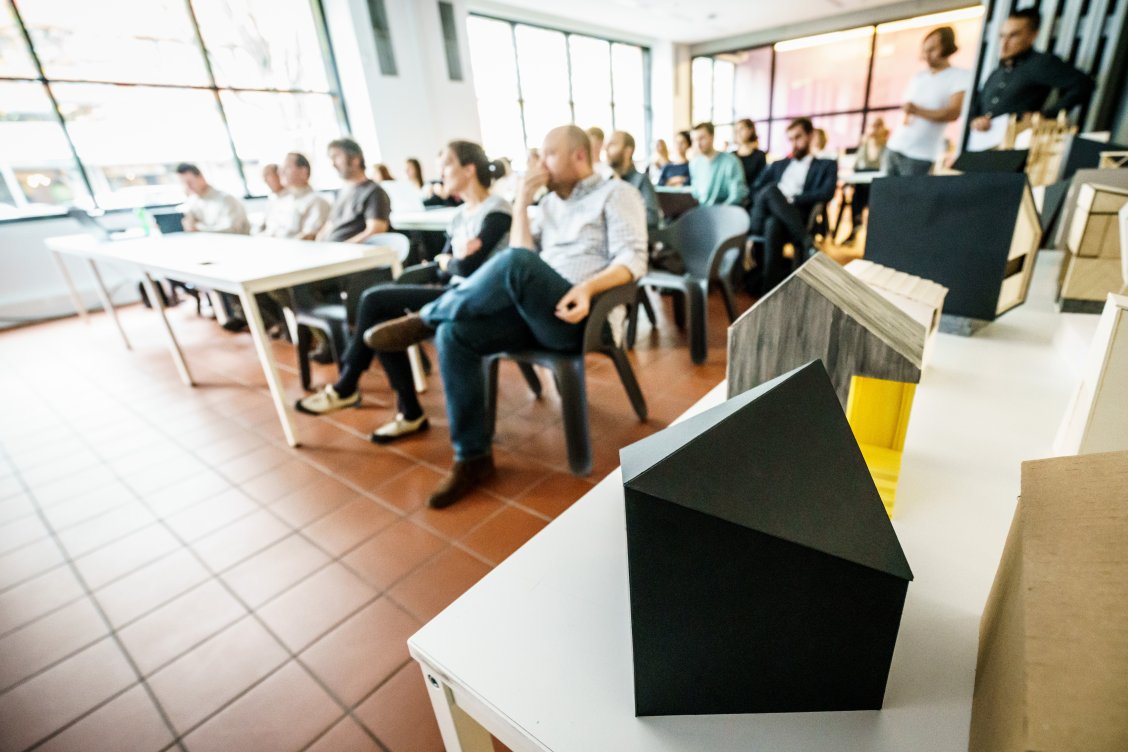Study with us the doctoral program
6/4/2020

Full details of the admission procedure can be found in the Dean's Decree 1/2020 and on the Ph.D. study website. We present to you topics on which you can apply to the supervisors of our institute.
Supervisors of our department and their topics
All the supervisors of our department work in the program Architecture and Urbanism in the field of Architecture, Theory and Design. Supervisors specify the thematic areas according to the applicant's focus, do not hesitate to contact them with a question!
doc. Ing. arch. Dalibor Hlaváček, Ph.D.
Innovative building concepts
With rapidly growing urbanization (54% of the world's population now lives in urban areas and this ratio is expected to grow to 66% by 2050), new building concepts need to be sought, whether energy-efficient, environmentally friendly, low consumption of resources, reducing the impact of buildings on the creation of a thermal island in the city, increasing local biodiversity or building life cycle.
Grant: Center for Advanced Photovoltaics (CAP). CAP brings together top experts in the fields of materials and architecture from CTU and abroad. It is a multidisciplinary environment to form cutting-edge research in the field of theoretical and applied photovoltaics.
Adaptive reuse
“Adaptive reuse” refers to the process of reusing existing buildings for a purpose other than that for which they were originally built. It can be an alternative to new construction in terms of sustainability and the circular economy. The aim is to explore different approaches that activate the hidden potential of buildings and give them new energy. Research can take the form of theoretical research in combination with the research by-design method.
Architecture in extreme conditions
Designing for extreme environments, including emergency shelters, polar stations, orbital and lunar devices. This is a complex problem that requires a multidisciplinary approach. In addition to the technical and environmental challenges, the architect has to deal with risk factors related to insulation, imprisonment and deprivation when designing such buildings, taking into account the limits in terms of energy, construction, material transport, construction life cycle, etc.
Architectural discipline and its tools
The architect's practice has changed dramatically in recent years thanks to digital technologies, advances in materials, construction and technology, and the evolution of construction requirements in the context of sustainable development. Increasing and changing demands on the architect must be reflected in practice and within the framework of architectural education. The subject of research is the profession of architect and the role of architectural schools in relation to this profession.
doc. Ing. arch. Petr Kordovský
Utilization of recultivated landscape of Podkrušnohoří
Use of reclaimed area, production and accumulation of energy, impacts on the environment and landscape, correction of technologies in terms of landscape protection, settlements and architectural character of the area.
Grant: TACR Theta, 3rd call. A program to support applied research, experimental development and innovation THÉTA, Subprogram 3 - Long-term Technology Perspectives.
prof. Ing. arch. Zdeněk Zavřel, dr. h. c.
Urgency of ecological approach to architecture
The current view of radical climate change goes beyond current estimates. CO2 production is not sufficient to achieve the climate targets when achieving the standards of recognized certification methods (LEED, BREAM, DHGB, etc.). Are we able to define new boundaries…?
The projection of contemporary housing issues in the Czech Republic into an architectural design
Over the past 30 years, there has been a significant development in housing typology in relation to existing urban planning opportunities. How will the architectural design react to the current crisis situation? Will we build new ghettos of minimal flats or will we find a way to a balanced quality of living environment?
Roots of Dutch architecture quality
Excursion to modern history and contemporary theory. The unprecedented quality of Dutch architecture has historical roots both in the cultural field and in society as a whole. Are we able to trace a critical path and learn from it…?
The role of an architect in the integral design of buildings
The quality of a complex building design cannot be a simple sum of the work of individual professions. Thanks to its holistic approach, the architect has traditionally played the role of "director" of complex processes. Will it be so in the future?
